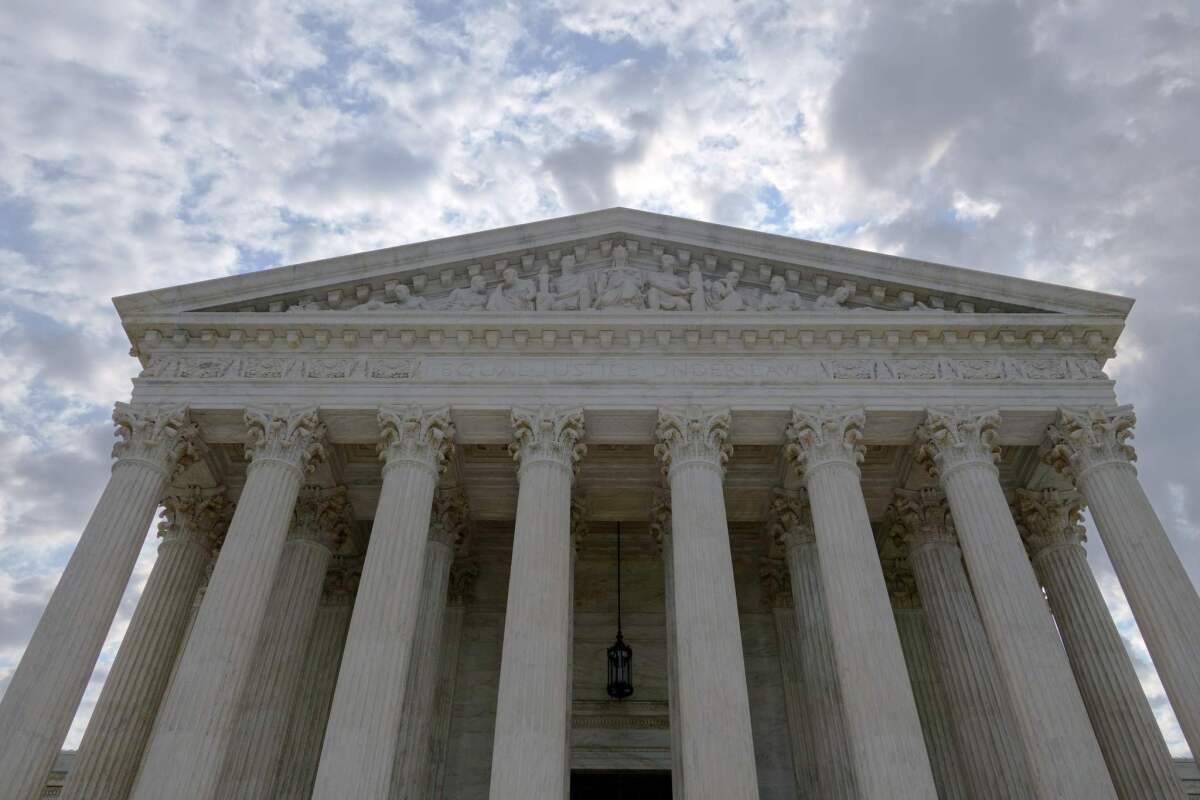Supreme Court says judges must step aside from cases they once prosecuted

- Share via
Reporting from Washington — The Supreme Court ruled Thursday that judges must step aside from ruling in a case if they had once played a key role in the prosecution.
The 5-3 decision sided with a death row inmate in Pennsylvania whose sentence was upheld by the state supreme court led by Chief Justice Ronald Castille, who decades earlier had approved seeking the death penalty in the same case.
Justice Anthony Kennedy cited the maxim that “no man can be a judge in his own case.” This rule requires a judge or justice to step aside from ruling in any case where he or she had “a significant, personal involvement” in the prosecution, he said.
The Constitution’s guarantee of due process of law “would have little substance if it did not disqualify a former prosecutor from sitting in judgment of a prosecution in which he or she had made a critical decision,” Kennedy said in Williams vs. Pennsylvania.
The high court’s decision is the second in recent years to strengthen the requirement that judges step aside from deciding cases in which their impartiality might be in doubt.
Kennedy also spoke for the court in 2009 in requiring an elected West Virginia Supreme Court justice to withdraw from ruling on a civil case involving a wealthy coal baron who had contributed several million dollars to support the judge’s campaign.
In the Pennsylvania case, the justices said the convicted murderer, Terrance Williams, deserves a new hearing before the state high court, without Castille.
In 1986, as a district attorney in Philadelphia, Castille authorized seeking the death penalty against Williams.
Two years ago, Castille refused to step aside when the state court considered an appeal from Williams. And he wrote a separate opinion to denounce the “obstructionist anti-death penalty agenda” of the public defenders representing Williams.
Shortly afterward, he retired from the state supreme court.
Chief Justice John G. Roberts Jr. dissented Thursday and said Kennedy’s “majority opinion rests on a proverb rather than precedent.”
He said the issues raised in the latest appeal from Williams were quite different from deciding whether to seek the death sentence in the first place.
“I would accordingly hold that the Due Process Clause did not require Chief Justice Castille’s recusal,” he said in a dissent joined by Justice Samuel A. Alito Jr. Justice Clarence Thomas also dissented.
ALSO
American Samoans seek full citzenship in Supreme Court appeal
A look at the abortion case before the Supreme Court, by the numbers
Supreme Court to reconsider two death penalty cases and take up a redistricting dispute
On Twitter: DavidGSavage
More to Read
Sign up for Essential California
The most important California stories and recommendations in your inbox every morning.
You may occasionally receive promotional content from the Los Angeles Times.











